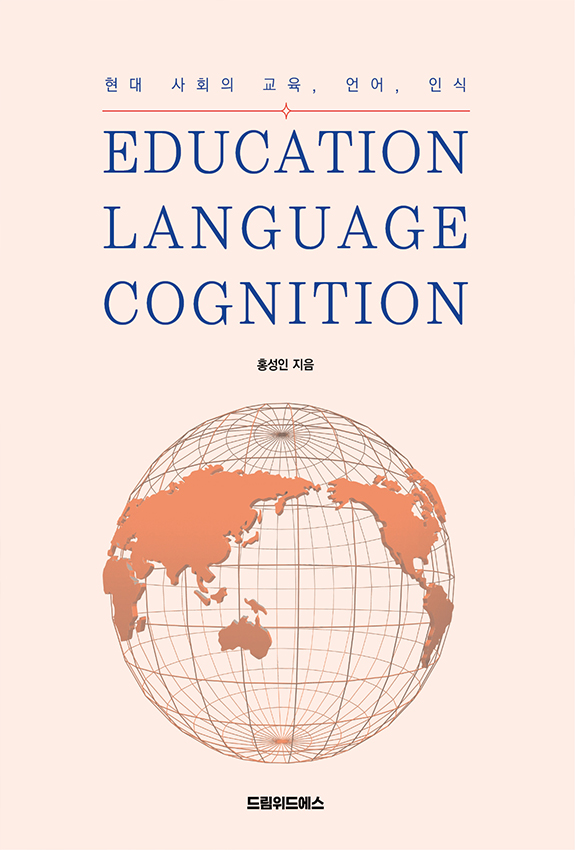‘인간이 언어 능력을 어떻게 갖게 되는지’에 대한 언어학의 근본적인 물음은 단순히 현학적인 문제이거나 또는 청소년에게 영어를 어떻게 잘 가르칠 수 있는지에 관한 문제가 아니다. 급변하는 현대 사회에서 인간이 외부의 자극물(stimulus)에 대해 과거와 매우 다른 환경에 노출되어 이제 인간의 마음이 어떻게 작동하는지 기본적인 이해가 매우 중요한 세상이 되었다. 대도시(megacity)와 초 연결 사회(hyper-connected society)로 이해되는 현대 사회는 서로 매우 긴밀히 영향을 주고받고 있기 때문에 이러한 이해가 매우 현실적인 문제가 되었다. 이 책은 변화하는 세상에서 인간이 외부의 세계(our knowledge of the external world)에 대해 어떻게 이해하고 적절하게 반응하고 살아야 하는지 언어학이나 인지 심리학의 여러 이론 등을 통해 접근해 본다.
The network society goes further than the information society, based on the wired Internet. In recent years, because of the hyper-connected society on the basis of Internet of things, Information processing, data processing, or computation extends to everything which happens in the universe. Because the computers have no intelligence of their own, they only function by the use of programs or algorithms to transform data. But individuals have different information-processing capacity, which means distinctive information overload point.
The overload point suggests that there might be problematic in terms of information processing specifically, with regard to the interpretation on human mind, nature, and society. Just like tons of variables in weather prediction, hyper-connected society and megacity seem to be engaged in a huge number of stakeholders. Due to such variables, misinterpretation leads to meaningless conflicts in our community.
Accordingly, it is not helpful for the generation of quantum mechanics to use the term ‘ethnic spirit’ with the emotional aspects in the 19th century, but helpful for them to get access to the new interpretation of circumstances.
However, ordinary people mistakenly believe that ignoring any conceptual element is somewhat free will. In retrospect, the misconceptions seem to be the fallout of the education system which has already had a significant impact on our mindset. Abstaining from reading books for all kinds of tests, the students meanwhile need to alienate themselves from solving the multiple-choice questions for the ironical purpose of their keeping conscience and protecting the pure soul.
To take an approach to a basic principle in terms of human mind and nature, this book as the new initiatives copes with a philosophical issue, and fundamental issues of linguistics, cognitive linguistics.
This book is well organized around the core four domains, namely: Cognitive Linguistics, Linguistics, Syntax, and Applied Linguistics. Each of these research areas will be studied on the specific topics: the Poverty of the Stimulus, Cognitive Capacity, Wh-movement and Cognition, Linguistic Analogy, Embodiment by Metaphor, Modularity, Relativized Minimality, Case, Merge, Modality.
PREFACE
Basic Concepts
Problematic Issues
New Initiatives
Ⅰ. Introduction
Ⅱ. Current Issues in terms of the fundamentals
2.1. How to teach the next generation?
2.2. Paradox of the Poverty of the Stimulus
2.3. The Richness of the Stimulus
Ⅲ. The Problematic Conditions
3.1. No poverty No curiosity; leaky vessel
3.2. Output-Centered Society
3.3. Derivation Problems
3.4. Minimized Capacity in the Maximal Conditions
3.5. Entropy and Authenticity
3.6. Entropy and Integrity; Going up the River
Ⅳ. Approach
4.1. The Possibility of Sociolinguistics
4.2. Language Instinct
4.3. Linguistics
4.3.1. Dimensional Disparity
4.3.2. Parameter-Centered Principle
4.3.3. Cognition by Orderliness and Performance
4.3.3.1. The Scope of Proof
4.3.4. Linguistic Analogy
4.3.5. Metaphor and Embodiment
4.3.6. Modularity
Ⅴ. Additional Topics
5.1. Linguistic Faculty and Cognitive Capacity
5.2. Movement and Cognition
5.3. Relativized Minimality
5.4. Merge
5.5. Case
5.6. Phonology and Cognition
5.7. Modality
Ⅵ. Conclusion
Voice Assimilation Abstract
References



 070-4651-3730
070-4651-3730 ksbookup@naver.com
ksbookup@naver.com 지식과감성# 카카오플러스 친구 추가
지식과감성# 카카오플러스 친구 추가